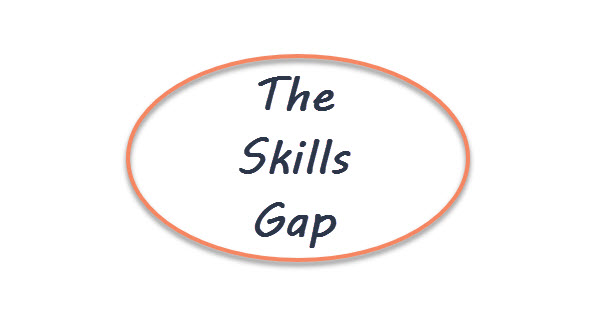
There are now 6. million job vacancies nationwide. It’s a historic high in our labor market. That means jobs are going unfilled at record rates.
So how can recruiters find qualified job candidates and deal with the skills gap while retaining momentum and credibility?
- Show a candidate his or her value
Reaching active jobseekers is usually not difficult, but motivating the highly skilled ones who need an incentive to leave their current employer is another story. One way to do so is to personalize your messages and emphasize the specific qualities you believe they can bring to a role, demonstrating that you see them as a fully rounded person behind their resume.
No candidate wants to feel that they’re on a conveyor belt of applicants. It might happen that your perfect candidate is wary of this after having been burned in the past by poor recruitment strategies.
A skeptical candidate isn’t going to be won over by a generic email or voicemail message. Instead, be specific with the candidate. Detail for him or her the skills on their resume that stood out for you as perfect for a certain job, or the experience they have that could be leveraged into a variety of roles. People often don’t see their skills as truly valuable – especially if they are being underpaid – until someone else tells them.
- Encourage candidates with potential to upskill quickly
Most of us have run into candidates whose skills don’t match up with their enthusiasm. These candidates might be able to move ahead of the competition by taking an intensive practical short course, which can sometimes take as little as one day or a weekend, if they’re willing to set aside some free time.
Examples include short courses in HTML coding, podcasting and video production and editing which are now in high demand for creative industries, marketing and media sectors. Because most reputable courses will offer accreditation, this new skill will stand out on the candidate’s resume.
The cost of these courses is often offset by the increased salary one can command with these skills. While it’s usually easy to encourage active jobseekers to set aside time for courses, passive jobseekers who may have been considering a short course already can use that final push as inspiration to work with you for the added career and financial possibilities.
- Challenge employers’ essential and desired requirements
Here’s an important statistic to remember: according to The Ladders, a candidate spends an average of 49 seconds reading a job description before dismissing it as unsuitable. Candidates can be deterred for several reasons, including a long list of qualities and responsibilities, a vague job description or a negative tone.
A recruiter should look beyond those words and talk to the employer directly about any problems that may be causing job seekers to steer clear. For instance, are they making your candidate’s potential dream job sound dull or restrictive? Are there entry-level duties being added to a mid-level vacancy?
A bad first impression, or a long list of ‘essential’ skills that really aren’t essential at all, can put off a highly skilled candidate. Discuss with the employer which skills are truly needed every day, and if there are skills that can be learned on the job or even set aside for the right person.
- Look for employer flexibility and individuality
Forward-thinking companies with flexible working policies, stand-out incentives and a more person-centered workplace can be a good option if you’re working with a highly skilled prospect who can’t find the right opportunity. A candidate whose skills really do bridge the gap may find several recruiters contacting them with similar-sounding openings.
A great way to win them over is with an open-minded workplace that views employees as people, not robots. In 2015, the Telegraph reported that the average worker will clock up 9,024 hours of unpaid overtime in their working life. So it should come as no surprise that in-demand candidates might want to compensate for past sacrifices with a few extra days’ leave.
A candidate placed in the right environment can lead to additional opportunities. They’ll feel valued as they move through their probation period and might recommend you to friends, family and former colleagues. Because a greater work-life balance and a happier workplace is so important to most job hunters, make sure to use it to your advantage when dealing with skilled candidates.
Once you learn how to deal with the skills gap at all levels, you’ll be ready to take on even the biggest recruitment challenges.
